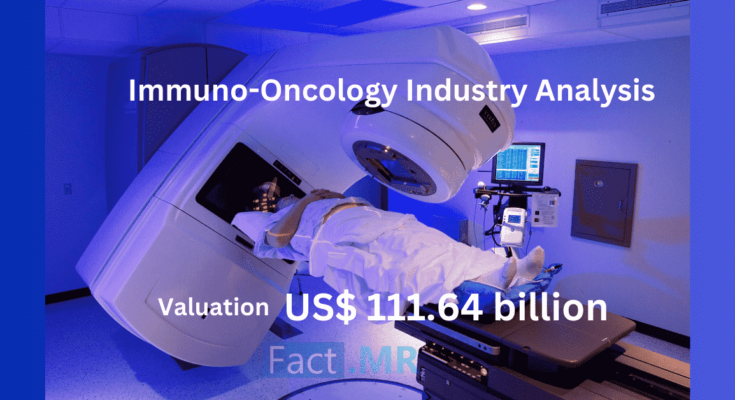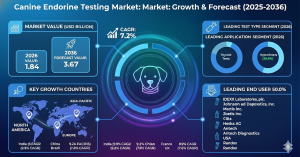Immuno-Oncology Industry Analysis
Immuno-Oncology Industry is changing how we treat cancer by using the body’s immune system to fight cancer cells. Unlike chemotherapy and radiation, which attack cancer directly, immuno-oncology boosts the immune system to better recognize and destroy cancer cells. This approach has been very successful in treating different types of cancer and is a major focus of pharmaceutical research and development.
The industry for immuno-oncology has experienced rapid growth in recent years, driven by several factors. Firstly, there has been a growing understanding of the complex interactions between cancer cells and the immune system, leading to identifying new therapeutic targets and pathways. Secondly, advances in biotechnology and immunotherapy techniques have developed novel immunotherapies with improved efficacy and safety profiles. Additionally, there has been a significant increase in investment and funding for immuno-oncology research, both from government agencies and private investors, further driving innovation in this field.
In the future, the immuno-oncology industry is poised for swift growth, fueled by ongoing research, technological progress, and rising demand for enhanced and personalized cancer therapies. According to recent research by Fact.MR, the industry is expected to register a CAGR of 16.5% from 2024 to 2034, and by the end of the forecast period, size is expected to be worth US$ 111.64 billion.
Market Landscape for the Immuno-Oncology Industry
- North America has occupied around 74% of the total market share in 2024.
- The focus on precision medicine and personalized treatment approaches is gaining momentum in the United States. Advances in genomics and biomarker identification are enabling healthcare providers to tailor immuno-oncology therapies to individual patients’ genetic profiles, maximizing efficacy and minimizing side effects.
- The National Health Service (NHS) in the UK plays a central role in the delivery of healthcare services, including cancer care. The integration of immuno-oncology therapies into the NHS formulary and treatment guidelines is a key trend, with a focus on ensuring good access to innovative treatments for all eligible patients.
- China’s immuno-oncology market is experiencing rapid growth, driven by rising cancer incidence, improving healthcare infrastructure, and increasing investment in biomedical research and development. Domestic biopharmaceutical companies are emerging as significant players in the market, driving innovation and competition.
- India has witnessed a surge in clinical trials focused on immuno-oncology. Pharmaceutical companies and research institutions are conducting trials to evaluate the safety and efficacy of new immunotherapies, both domestically developed and those from international collaborations.
- The Indian government has initiated programs to support cancer research and improve access to innovative treatments, including immunotherapy. Policies aimed at promoting indigenous drug development and enhancing healthcare infrastructure are contributing to advancements in immuno-oncology.
Get a Sample Copy of the analysis Report
Leading Key Companies in the Market
- Merck & Co., Inc.: Merck’s immunotherapy Keytruda (pembrolizumab) has continued to show its efficacy across multiple cancer types, including lung cancer, melanoma, and head and neck cancer. Keytruda received several approvals for new indications and expanded its label in various markets. Merck has also offered various services in combination therapies, exploring Keytruda in combination with chemotherapy, targeted therapies, and other immunotherapies to improve treatment outcomes for patients with advanced cancers.
- Bristol Myers Squibb: Bristol Myers Squibb comprises of immuno-oncology portfolio, with Opdivo (nivolumab) and Yervoy (ipilimumab) gaining approvals for additional indications, including advanced liver cancer and mesothelioma. The company is focused on expanding its pipeline with novel combination therapies, such as Opdivo plus chemotherapy or targeted agents, to address unmet needs in various cancer types.
- Roche/Genentech: Roche/Genentech have achieved significant milestones with their immunotherapy portfolio, including Tecentriq (atezolizumab) gaining approvals for bladder cancer, triple-negative breast cancer, and extensive-stage small cell lung cancer. The company also advanced combination therapies, including Tecentriq combined with other targeted agents or chemotherapy, to improve outcomes for patients with difficult-to-treat cancers.
- AstraZeneca: AstraZeneca’s immuno-oncology efforts focused on expanding the indications for Imfinzi (durvalumab) and enhancing its pipeline with novel combination therapies, such as Imfinzi plus tremelimumab. The company made progress in biomarker-driven approaches to identify patients most likely to benefit from immunotherapy and continued to invest in early-stage research to discover next-generation therapies.
- Novartis: Novartis continued to advance its CAR-T cell therapy portfolio, with Kymriah (tisagenlecleucel) and Yescarta (axicabtagene ciloleucel) demonstrating durable responses in patients with relapsed or refractory hematologic malignancies. The company explored new CAR-T constructs, targets, and manufacturing processes to improve the safety, efficacy, and accessibility of CAR-T therapies for patients.
Get a customization copy as per your requirements
In the pharmaceutical and biotechnology sectors, significant investment is directed towards advancing immuno-oncology research. Companies are innovating to enhance therapy effectiveness, improve patient outcomes, and broaden the range of treatable cancers.
Efforts concentrate on discovering new therapy targets, developing combination treatments to boost immune response, and refining manufacturing processes for consistent and scalable production.
More related in-depth analysis



